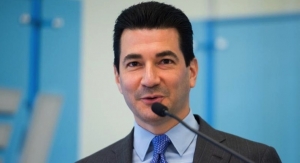Greg Stephens & Sandy Bigelow, Windrose Partners06.01.16
Manufacturers of nutritional ingredients are legally allowed to market their product if they meet one of three criteria:
There are two approaches to achieve GRAS status, based on 1) history of safe use and 2) scientific procedures, or both, which are discussed in more detail here. Supplement ingredient companies can voluntarily notify the FDA regarding their GRAS self-determination, and FDA’s acknowledgement of this analysis enables greater acceptance from customers.
Most supplement manufacturers and their suppliers have not taken advantage of the GRAS self-determination process, often because of the added cost to product development and their level of understanding of the process. Yet nowadays, some supplement companies on the vanguard are conducting GRAS self-determinations justified by the large potential that their dietary ingredients represent in the market beyond supplements—the total U.S. food supply.
Several advocates have recently called for greater transparency in the GRAS self-determination process to illuminate any potential for perceived conflict of interest, hoping to pressure the federal government to monopolize the GRAS process. The FDA has stated that by August 2016 it will finalize its 1997 proposal for the GRAS notification process as part of a legal settlement with the Center for Food Safety. It is expected that, among other issues, FDA will address the transparency and conflict of interest issues.
The GRAS self-determination process has been used for food ingredients for more than 50 years, yet this process has not been widely used for supplement ingredients because of cost constraints and a full understanding of the process by the supplement manufacturing community. What follows is a business perspective overview of the process and the specific requirements to determine GRAS status for supplement ingredient use.
Qualified Experts
Since 1958, manufacturers have been allowed to self-determine the GRAS status for specific use(s) of their ingredient(s) used in food products (62 FR 18,937 at 18,940). General recognition of safety may be based on the views of experts qualified by scientific training and experience to evaluate the safety of substances directly added to food (21 CFR 170).
Manufacturers often hire an expert consultant external to their firm to prepare a GRAS dossier for the ingredient. The consultant convenes a panel of experts to address the issues identified during dossier preparation. The experts serve on the panel to determine whether the use of the ingredient is indeed GRAS, and to determine whether sufficient technical and scientific information exists as elaborated in the dossier to achieve general recognition that use of the ingredient is GRAS.
The panel convenes at a neutral site, deliberates pertinent issues, resolves them, and based on reasoned judgment, concludes whether the specific use(s) of the ingredient is GRAS. The panel develops and signs a consensus statement of its conclusions that embodies the issues raised during the panel review; this statement forms the basis of the GRAS self-determination. Both the dossier and statement of conclusions can be used by manufacturers to aid in the technical sales aspect of ingredient marketing.
Before each expert is selected, it must be established that he/she is free of conflict (actual or perceived)—be it financial, personal or professional—for or against the manufacturer or its competitors. These potential conflict(s) can be elaborated in the consensus statement to enable transparency of the safety determination.
Experts can develop bias based on their experience(s). Bias is allowed if it is strictly based on scientific issues alone, as it is understood that expertise cannot be gained without developing some sort of intuitive bias and inclination on scientific issues. The expert panel should represent, as a whole, a balance of bias regarding the full gamut of issues related to the GRAS determination, and is composed in a manner that minimizes the likelihood of predilections and skewed judgment. Accordingly, subjective variability of the panelists, such as personal leanings not based on scientific data or “going with the conventional wisdom,” should be avoided. These steps are necessary to obtain a panel of experts that can objectively self-determine GRAS status independent of the manufacturer and other interested parties.
Safety Standards
The safety standard component requires that for the use of a substance to be determined as GRAS, competent scientists must establish reasonable certainty that the substance is not harmful under its intended conditions of use (21 CFR 170.3(i); 62 FR 18,937 at 18,940). This has served well as an acceptable, time-tested standard for determining the safety of ingredients when consumed as part of the diet.
A supplement and its ingredients are considered safe if they do not present a significant or unreasonable risk of illness or injury under conditions of use recommended or suggested in labeling (21 CFR 190.6). Even though these safety standards differ slightly, on a practical basis, the GRAS self-determination process has been used for validating the safety and regulatory acceptability for both food and supplement ingredients.
FDA has listed the types of ingredients that are eligible for a GRAS self-determination (21 CFR 170.30), many of which are already used as supplement ingredients. Substances of biological origin consumed for their nutrient properties, without known detrimental effect, whether altered through breeding practices or otherwise, are eligible to be classified as GRAS. In addition, the use of substances of natural biological origin intended for consumption for other than their nutrient properties are also eligible for GRAS determination.
The agency recognizes two approaches that manufacturers can use to self-determine GRAS status for ingredient use: 1) “scientific procedures” and/or 2) in the case of a substance used in food prior to Jan. 1, 1958, through experience based on “common use” in food, which serves as the basis of expert opinion.
For the latter, general recognition of safety may be determined without the quantity or quality of scientific procedures required for approval of a food additive regulation. An ingredient not in common use in food prior to Jan. 1, 1958, may achieve general recognition of safety only through scientific procedures.
General recognition of safety based upon scientific procedures requires the same quantity and quality of scientific evidence as is required to obtain approval of a food additive. For the scientific procedures approach, animal toxicology studies are often conducted with the substance. General recognition of safety through scientific procedures shall ordinarily be based upon published studies, which may be corroborated by unpublished studies and other data and information.
Primarily, the evidence for a GRAS determination must be publicly available in an effort to achieve and support general recognition by the scientific community. In defining consensus of the scientific community, the FDA recognizes that consensus does not require unanimity among qualified experts to satisfy the common knowledge element of the GRAS standard (62 FR 18,937).
In summary, since before DSHEA, supplement manufacturers have been enabled to GRAS self-determine the use of their supplement ingredients. This year the FDA is expected to finalize its 1997 proposal for the process of conducting GRAS self-determinations and submitting voluntary notifications, due in late 2016.
Understanding the considerations and requirements for conducting the GRAS self-determination process should help ingredient manufacturers make wise decisions. The outcome of GRAS self-determinations can help ingredient companies expand their markets to fortified/functional foods and medical foods. Most often the most effective and efficient approach to GRAS self-determination is to speak with a qualified consultant or firm to provide a preliminary GRAS opinion and, with your input, to lead the process forward.
References
Gregory Stephens
Windrose Partners
Greg Stephens is president of Windrose Partners, a company serving clients in the the dietary supplement, functional food and natural product industries. Formerly vice president of strategic consulting with the Natural Marketing Institute (NMI) and vice president of sales and marketing for Nurture, Inc (OatVantage), he has 25 years of specialized expertise in the nutritional and pharmaceutical industries. His prior experience includes a progressive series of senior management positions with Abbott Nutrition (Ross Products Division of Abbott Laboratories). He can be reached at 267-432-2696; E-mail: gregstephens@windrosepartners.com.
Sandy Bigelow
Sandy Bigelow, PhD, DABT, is principal at Vanguard Global Associates LLC (VGA), a leading-edge consultancy of experienced associates who work together to develop creative solutions to their clients’ challenges. VGA helps clients deal with the safety and claims aspects of commercializing their ingredients and products. Mr. Bigelow is Board Certified in General Toxicology (DABT), qualifying a practice in safety assurance and evaluation.
- The ingredient was lawfully marketed as a dietary supplement prior to Oct. 25, 1994 (which corresponds to the passage of the Dietary Supplement Health and Education Act, DSHEA);
- If the ingredient was introduced into interstate commerce on or after Oct. 25, 1994, then companies must submit a “new dietary ingredient” notification to FDA; or
- The manufacturer conducts an analysis demonstrating that the use of these ingredients in food and supplement products is Generally Recognized As Safe (GRAS).
There are two approaches to achieve GRAS status, based on 1) history of safe use and 2) scientific procedures, or both, which are discussed in more detail here. Supplement ingredient companies can voluntarily notify the FDA regarding their GRAS self-determination, and FDA’s acknowledgement of this analysis enables greater acceptance from customers.
Most supplement manufacturers and their suppliers have not taken advantage of the GRAS self-determination process, often because of the added cost to product development and their level of understanding of the process. Yet nowadays, some supplement companies on the vanguard are conducting GRAS self-determinations justified by the large potential that their dietary ingredients represent in the market beyond supplements—the total U.S. food supply.
Several advocates have recently called for greater transparency in the GRAS self-determination process to illuminate any potential for perceived conflict of interest, hoping to pressure the federal government to monopolize the GRAS process. The FDA has stated that by August 2016 it will finalize its 1997 proposal for the GRAS notification process as part of a legal settlement with the Center for Food Safety. It is expected that, among other issues, FDA will address the transparency and conflict of interest issues.
The GRAS self-determination process has been used for food ingredients for more than 50 years, yet this process has not been widely used for supplement ingredients because of cost constraints and a full understanding of the process by the supplement manufacturing community. What follows is a business perspective overview of the process and the specific requirements to determine GRAS status for supplement ingredient use.
Qualified Experts
Since 1958, manufacturers have been allowed to self-determine the GRAS status for specific use(s) of their ingredient(s) used in food products (62 FR 18,937 at 18,940). General recognition of safety may be based on the views of experts qualified by scientific training and experience to evaluate the safety of substances directly added to food (21 CFR 170).
Manufacturers often hire an expert consultant external to their firm to prepare a GRAS dossier for the ingredient. The consultant convenes a panel of experts to address the issues identified during dossier preparation. The experts serve on the panel to determine whether the use of the ingredient is indeed GRAS, and to determine whether sufficient technical and scientific information exists as elaborated in the dossier to achieve general recognition that use of the ingredient is GRAS.
The panel convenes at a neutral site, deliberates pertinent issues, resolves them, and based on reasoned judgment, concludes whether the specific use(s) of the ingredient is GRAS. The panel develops and signs a consensus statement of its conclusions that embodies the issues raised during the panel review; this statement forms the basis of the GRAS self-determination. Both the dossier and statement of conclusions can be used by manufacturers to aid in the technical sales aspect of ingredient marketing.
Before each expert is selected, it must be established that he/she is free of conflict (actual or perceived)—be it financial, personal or professional—for or against the manufacturer or its competitors. These potential conflict(s) can be elaborated in the consensus statement to enable transparency of the safety determination.
Experts can develop bias based on their experience(s). Bias is allowed if it is strictly based on scientific issues alone, as it is understood that expertise cannot be gained without developing some sort of intuitive bias and inclination on scientific issues. The expert panel should represent, as a whole, a balance of bias regarding the full gamut of issues related to the GRAS determination, and is composed in a manner that minimizes the likelihood of predilections and skewed judgment. Accordingly, subjective variability of the panelists, such as personal leanings not based on scientific data or “going with the conventional wisdom,” should be avoided. These steps are necessary to obtain a panel of experts that can objectively self-determine GRAS status independent of the manufacturer and other interested parties.
Safety Standards
The safety standard component requires that for the use of a substance to be determined as GRAS, competent scientists must establish reasonable certainty that the substance is not harmful under its intended conditions of use (21 CFR 170.3(i); 62 FR 18,937 at 18,940). This has served well as an acceptable, time-tested standard for determining the safety of ingredients when consumed as part of the diet.
A supplement and its ingredients are considered safe if they do not present a significant or unreasonable risk of illness or injury under conditions of use recommended or suggested in labeling (21 CFR 190.6). Even though these safety standards differ slightly, on a practical basis, the GRAS self-determination process has been used for validating the safety and regulatory acceptability for both food and supplement ingredients.
FDA has listed the types of ingredients that are eligible for a GRAS self-determination (21 CFR 170.30), many of which are already used as supplement ingredients. Substances of biological origin consumed for their nutrient properties, without known detrimental effect, whether altered through breeding practices or otherwise, are eligible to be classified as GRAS. In addition, the use of substances of natural biological origin intended for consumption for other than their nutrient properties are also eligible for GRAS determination.
The agency recognizes two approaches that manufacturers can use to self-determine GRAS status for ingredient use: 1) “scientific procedures” and/or 2) in the case of a substance used in food prior to Jan. 1, 1958, through experience based on “common use” in food, which serves as the basis of expert opinion.
For the latter, general recognition of safety may be determined without the quantity or quality of scientific procedures required for approval of a food additive regulation. An ingredient not in common use in food prior to Jan. 1, 1958, may achieve general recognition of safety only through scientific procedures.
General recognition of safety based upon scientific procedures requires the same quantity and quality of scientific evidence as is required to obtain approval of a food additive. For the scientific procedures approach, animal toxicology studies are often conducted with the substance. General recognition of safety through scientific procedures shall ordinarily be based upon published studies, which may be corroborated by unpublished studies and other data and information.
Primarily, the evidence for a GRAS determination must be publicly available in an effort to achieve and support general recognition by the scientific community. In defining consensus of the scientific community, the FDA recognizes that consensus does not require unanimity among qualified experts to satisfy the common knowledge element of the GRAS standard (62 FR 18,937).
In summary, since before DSHEA, supplement manufacturers have been enabled to GRAS self-determine the use of their supplement ingredients. This year the FDA is expected to finalize its 1997 proposal for the process of conducting GRAS self-determinations and submitting voluntary notifications, due in late 2016.
Understanding the considerations and requirements for conducting the GRAS self-determination process should help ingredient manufacturers make wise decisions. The outcome of GRAS self-determinations can help ingredient companies expand their markets to fortified/functional foods and medical foods. Most often the most effective and efficient approach to GRAS self-determination is to speak with a qualified consultant or firm to provide a preliminary GRAS opinion and, with your input, to lead the process forward.
References
- Code of Federal Regulations (CFR). U.S. Government Printing Office, Washington, D.C.
- FCC 2014. Food Chemicals Codex, Ninth Edition. The U.S. Pharmacopeial Convention, Rockville, MD.
- FDA 2007. FDA Redbook. Guidance for Industry and Other Stakeholders. Toxicological Principles for the Safety Assessment of Food Ingredients. pp. 286.
- Federal Register (FR). U.S. Government Printing Office, Washington, D.C.
Gregory Stephens
Windrose Partners
Greg Stephens is president of Windrose Partners, a company serving clients in the the dietary supplement, functional food and natural product industries. Formerly vice president of strategic consulting with the Natural Marketing Institute (NMI) and vice president of sales and marketing for Nurture, Inc (OatVantage), he has 25 years of specialized expertise in the nutritional and pharmaceutical industries. His prior experience includes a progressive series of senior management positions with Abbott Nutrition (Ross Products Division of Abbott Laboratories). He can be reached at 267-432-2696; E-mail: gregstephens@windrosepartners.com.
Sandy Bigelow
Sandy Bigelow, PhD, DABT, is principal at Vanguard Global Associates LLC (VGA), a leading-edge consultancy of experienced associates who work together to develop creative solutions to their clients’ challenges. VGA helps clients deal with the safety and claims aspects of commercializing their ingredients and products. Mr. Bigelow is Board Certified in General Toxicology (DABT), qualifying a practice in safety assurance and evaluation.























